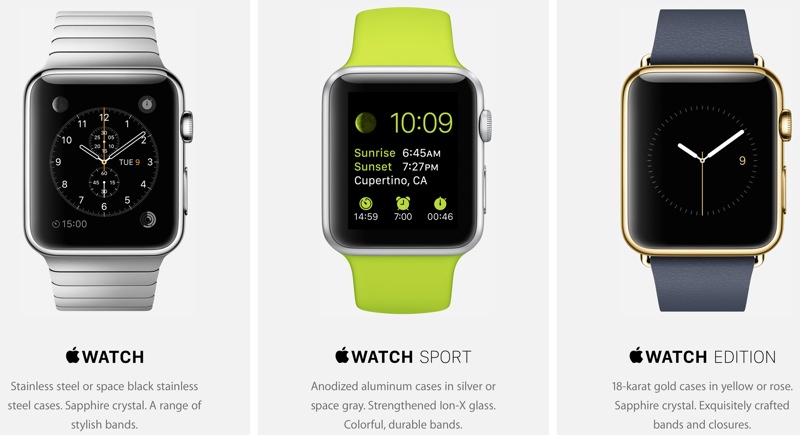
Since Monday’s unveiling of the Apple Watch, headlines have been foretelling the impending doom of luxury watch brands. But since when has Apple been a luxury brand, not to mention one with this kind of sway? While the tech company did poach several big names from the high-end retail industry including ex-Burberry CEO Angela Ahrendts, a “luxury” stamp would imply competition with well-established brands in the luxury category. That simply isn’t the case, and won’t be for quite some time. Here’s why.
Accessibility. Sure, there’s a $17,000 edition of the Apple Watch that is inaccessible to the average consumer, but its counterpart is on par with the brand’s existing iPhones, items owned by the majority of smartphone holders in the U.S. The true meaning of a luxury item goes back to its scarcity, and its reservation only for those who are willing and able to pay the top price. Thanks to the dilution of the word, true luxury is becoming more and more difficult to define. Either way, Apple isn’t it.
Investment. To the affluent (and aspiring affluent), purchasing a Rolex means more than making a fashion statement – it means making an investment in a long-standing brand whose value grows over time. The moment you slap an Apple Watch on your wrist, whether it’s the basic sport or elite gold model, it depreciates as the technology begins to age instantly. In typical Apple fashion, new editions will be released, and your new Watch will eventually gather dust next to your iPhone 3GS.
Mass production. As the term luxury fades into insignificance, brands are striving to find new ways to identify and present themselves to the affluent audience. In the travel market, bespoke trips offering one-of-a-kind experiences not found through traditional channels are the preferred experience of UHNWIs. This trend is impacting the retail sector as well, with rarity and customization driving ultra-affluent purchases. Despite the personal touches Apple offers with its Watch, it remains a generally accessible, mass-produced item.
Arguments aside, this is not to say that wealthy consumers won’t purchase an Apple Watch. In fact, I expect many will, particularly those falling into the younger, raised-with-tech side of the luxury spectrum. But neither this audience nor those experienced in the industry will consider the watch a “luxury” purchase. And the greater question remains: do affluent consumers even care which brand of watch they have? Only time will tell.